How Powerful is People Power – A Different Perspective of Tips and Thoughts
How powerful can people power be? Can it be a means to an end?
As the old proverb goes, vox populi, vox dei, the voice of the people is the voice of God! Considering my faith in God’s power, I quite agree with the said old adage. It can be deduced in a way that some sort of Divine intervention could have played a vital role in a successful people power revolution, especially in a non-violent and bloodless scenario. This could probably be a way of God’s response to the impassioned plea of the majority of the people for help, regardless of religious conviction. As such, if God so plans for any change in any given circumstance, anything impossible will be possible. However, the possibility of success and radical change in a difficult scenario would definitely require a strategic plan and courses of action from various key players involved. Yes, it couldn’t be through prayers alone, but it has to be coupled with a prudent action.
Typically, oppressed and disgruntled people would voice out their grievances especially under a Government whose leadership is marred with corruption, greed, decades in power, economic problems (e.g. poverty, unemployment) and other related issues. Initially, these people would at first voice out their grievances in the streets or in any other venue to demand reforms in policies and even to clamor for change in the leadership of a particular bureaucracy. If demands are not heard and merely ignored for so long years however, the next reaction would normally for the more active people to go out and hold large mass protests and as a last resort to instigate and topple the leadership either through non-violent or violent means of people power revolt. That’s what had happened in certain government administrations in the past and even during historic times, and this is apparently being experienced in certain countries at present.
The recent people power revolt in Egypt, the so-called cradle of civilization, can be considered as a remarkable paradigm shift in the political sphere in Africa and the Middle East. Why Africa and Middle East? While Egypt is geographically located in Northern Africa, it has close ties with the Middle East as it shares the same customs and traditions, and likewise politically closer to the Arab World. We all know from reports in tri-media that Egypt’s people power revolt was a hit all over the world as it made its long overdue ruler, President Hosni Mubarak stepped down and relinquished his post to the military. Imagine, the people waited for 30 long years for the economic goods to come but nothing came, which persuaded them to take their hardships to the streets. Many people have been injured and some of them unfortunately offered their lives as a result of which, but in the end they won. 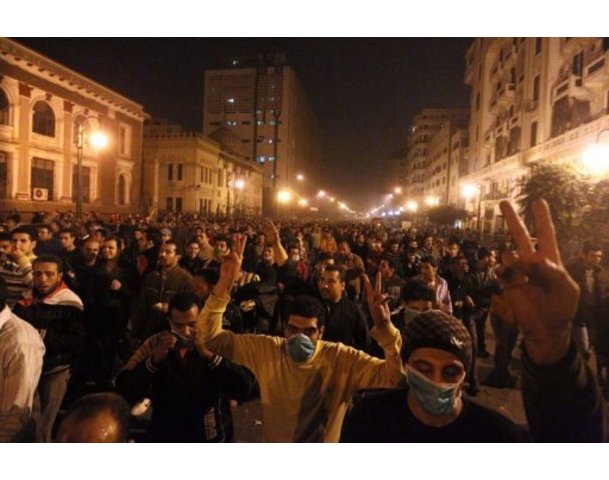 And yes, it has been observed that some of these people who were on the streets, especially the peace loving Egyptians, were praying and carrying their Koran, reflective of their yearning for Divine intervention.
And yes, it has been observed that some of these people who were on the streets, especially the peace loving Egyptians, were praying and carrying their Koran, reflective of their yearning for Divine intervention.
However, the downfall of Egypt’s Mubarak may not be considered as of yet a full blown victory on the part of the public masses as the country may still in limbo as far as leadership is concerned. As such, the country’s present military management should facilitate the critical next steps particularly the holding of an official Presidential election and allow the people to exercise their right of suffrage for their desired worthy, capable and incorruptible President, if they so desire. In which case, they would be able to complete the revolt stage and realize the dreams of the people, particularly the ideal young ones, to have a President that would hopefully lead them and pave the way for the country’s economic recovery. They should make sure though that the reforms they wanted be realized and that the gains and fruits of their labor in the streets be not squandered for nothing. 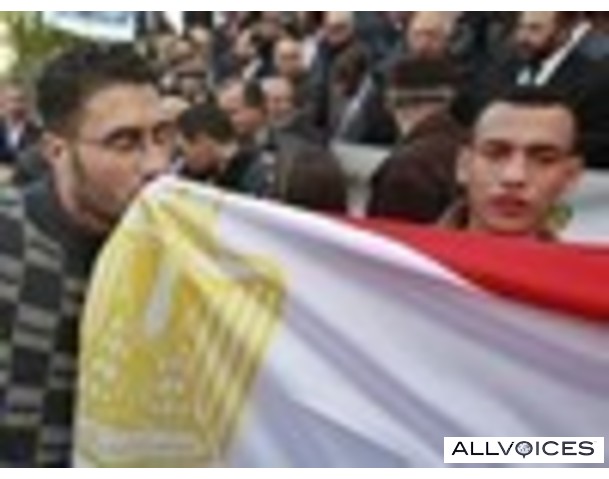
The successful people power revolution in Egypt is echoing outside its borders. Based on news reports, Libyans likewise are currently braving their way out to oust an even more long overdue Qaddafi (Gaddafi) administration of 41 years. However, it is sad to note that many have sacrificed and the numbers are rising as of to date. So, what we ordinary worldwide citizens could help in any way we can is to offer prayers for the Libyans, that the internal conflict among them will be resolved soon, particularly to put a stop to further suppression and human bloodshed. I am not pretty much of a militant type of person, as I believe there are several ways to help other than being in the large crowd, if given the option. My prayer is for the entire leadership to be enlightened and for them to realize that their oppressed countrymen have human rights that should be respected and honored.
The same situation is happening in the neighboring countries of Egypt. People in Tunisia, Bahrain, Yemen, Lebanon, Algeria, Jordan, Syria are also facing “dark clouds” in their respective leadership. As such, protests, riots, demonstrations, and other uprising means of emotions are exploding in these countries. Why do you think these things are happening nowadays? Could there be a reason, or could it just be a mere coincidence? The on-going phenomenon could perhaps serve as a wake-up call for other bordering Middle East and African states to address the needs of their people. I understand the Saudi Arabia administration has recently decided and announced to offer remarkable economic benefits for its citizenry such as employment assistance, interest free home loans and other related social welfare financial packages. I hope this could be a start of the happy days for these people.
The people power revolution in the Philippines was an “iconic” example of a successful non violent bloodless revolution throughout the world. People flocked through the streets and highways of the metropolis to support the call of the key leaders to bring down a 20-year running regime.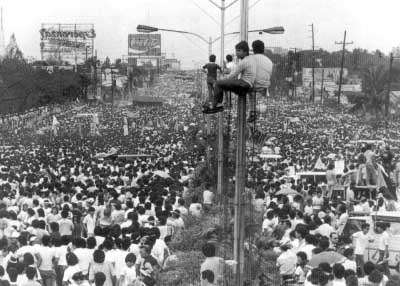 The said revolution was unique as tons of prayerful mass demonstrations from all walks of life were held in various parts of the country. Considered as the only prominent catholic country in Asia, religious leaders, priests and nuns have actively participated and were out in the streets together with the large crowd of people praying, providing food, singing and giving out flowers to the soldiers manning the military tanks, making the environment a little bit subdued and peaceful. Perhaps because of the prayers offered by everyone, the deposed President did not react violently to the vehement demands of the people for him to step down. Of course, this is aside from the pressure of certain foreign governments which made the deposed President to painfully exit paving the way for a new and fresh administration to rule the country.
The said revolution was unique as tons of prayerful mass demonstrations from all walks of life were held in various parts of the country. Considered as the only prominent catholic country in Asia, religious leaders, priests and nuns have actively participated and were out in the streets together with the large crowd of people praying, providing food, singing and giving out flowers to the soldiers manning the military tanks, making the environment a little bit subdued and peaceful. Perhaps because of the prayers offered by everyone, the deposed President did not react violently to the vehement demands of the people for him to step down. Of course, this is aside from the pressure of certain foreign governments which made the deposed President to painfully exit paving the way for a new and fresh administration to rule the country. 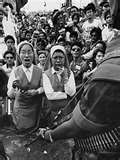
There are lessons to be learned from the people power revolution in certain countries. In the Philippines for instance, while it was relatively unproblematic and at the same time pretty successful in toppling down some of its Presidents, it has not really progressed much at all compared to its neighboring countries after a triple of people power. True, the exceptional and peaceful manner within which the Philippine people power was undertaken 25 years ago, did serve as a role model for other similarly situated economies. However, what remains and happens after the fact is the most relevant and important. Despite its success however, people power revolution is definitely not a means to an end of economic hardships. Corruption, poverty, and other major problems are eminent and its effects are still being felt by the common people in the Philippines. The rich are becoming richer, the poor ones are becoming poorer, the gap between the two classes of society is widening. This is sad to note but the poor Filipino people have still high hopes that someday they will be freed from the sufferings of poverty.
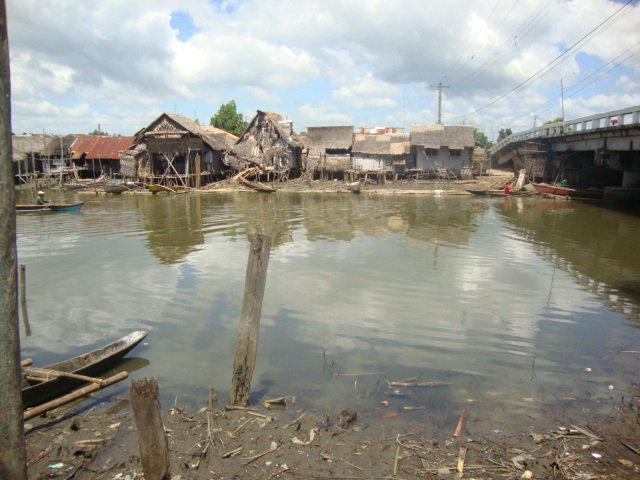
A rural poor setting in one of the provinces in the Philippines….
(photo not for reproduction please)
Hence, people power should be a continuing and learning process for all of us. We should be vigilant and always on the look out for any misdoings in our respective leaderships.
With the foregoing being said, I believe that the voice of the people, from both the vocal and silent majority, may represent the voice of God for the betterment not only for the majority but for all the people, good or bad. As such, people power is an influential and powerful weapon to overthrow tyrants and it has been proven time and again. The people power with an aid of prayer power and a favorable response from God is far more valuable and effective than anything else. Prayers can move mountains and I firmly believe in this!
Feel free to send in your thoughts on this.
Though a one-liner piece, it still seems to be impressive, just like the way people power was conducted in other places. But im not sure whether there are impressive outcomes as a result of which. Sometimes, abusive use of freedom of speech (.e.g protests,…) can also trigger a divisive community. Decent blogsite!
I am grateful to a friend of mine who frequents your blog site and recommended the same to me. Great articles you have here. It seems you find yourself in a situation where you want to cover everything so as to express out your views freely, especially on current issues like the MDG’s. The thesis is interesting. Thanks!
People power really works! The same thing has been painstakingly and successfully done in certain countries and recently in Libya. Like other citizens throughout the world, majority of Libyans want peace and order in their country so they can go back to living a normal life. It’s just sad that some of them have to sacrifice their lives for this.